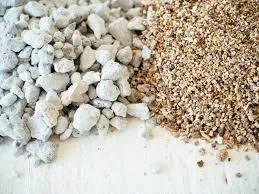Sep . 17, 2024 10:59 Back to list
Wall Insulating Materials Supplier - High-Quality Insulation Solutions
The Importance of Wall Insulating Materials A Comprehensive Guide
In today’s world, energy efficiency is more crucial than ever. As energy costs continue to rise and environmental concerns loom larger, the push for better insulation in buildings has become increasingly relevant. Wall insulating materials play a vital role in achieving energy efficiency, reducing heating and cooling costs, and promoting sustainable living. This article explores various types of wall insulating materials, their benefits, and the factors to consider when selecting a supplier.
Types of Wall Insulating Materials
There are several types of insulating materials used for walls, each with unique properties and advantages
1. Fiberglass Insulation One of the most common insulation types, fiberglass is made from fine glass fibers. It is non-combustible and offers excellent thermal performance. Fiberglass insulation is available in batts, rolls, or loose-fill, making it versatile for different applications.
2. Foam Board Insulation Rigid foam board insulation is made from polystyrene, polyisocyanurate, or polyurethane. It provides high insulating values with relatively little thickness, making it ideal for areas with limited space, such as basement walls.
3. Spray Foam Insulation Spray foam is a popular choice for irregularly shaped spaces and areas that demand superior performance. This material expands upon application, filling gaps and creating an airtight seal that significantly reduces air infiltration.
4. Mineral Wool (Rock Wool) Insulation Made from natural or recycled materials, mineral wool is fire-resistant and offers excellent soundproofing qualities. It is an ideal choice for multifamily buildings, where noise reduction is a priority.
5. Cellulose Insulation Made from recycled paper products, cellulose is an eco-friendly option. It is treated with fire retardants and can be blown into walls, providing good thermal resistance while minimizing environmental impact.
Benefits of Quality Wall Insulating Materials
Investing in high-quality wall insulating materials has numerous benefits
wall insulating materials supplier

- Energy Efficiency Quality insulation reduces the amount of energy required for heating and cooling, leading to lower energy bills and a reduced carbon footprint
.- Comfort Proper insulation helps to maintain a consistent indoor temperature, providing a more comfortable living environment.
- Soundproofing Insulation materials like mineral wool can significantly reduce noise transmission, creating quieter interiors.
- Moisture Control Good insulation systems can help manage moisture levels, reducing the likelihood of mold and mildew growth.
Choosing a Reliable Supplier
When selecting wall insulating materials, choosing a reputable supplier is essential. Here are some tips for finding a reliable provider
- Quality Assurance Look for suppliers that adhere to industry standards and certifications, which ensure their products meet safety and performance benchmarks.
- Product Range A good supplier should offer a variety of insulation materials to suit different applications and preferences.
- Expertise and Support Choose a supplier that offers expert advice and support to guide you in selecting the right insulation for your project.
- Customer Feedback Research customer reviews and testimonials to gauge the supplier’s reliability and customer service.
In conclusion, wall insulating materials are crucial for enhancing energy efficiency, comfort, and sustainability in modern buildings. By understanding the various insulation types and choosing a reputable supplier, homeowners and builders can make informed decisions that lead to long-term benefits.
-
Fe-C Composite Pellets for BOF: Enhance Steelmaking Efficiency
NewsAug.07,2025
-
Eco-Friendly Granule Covering Agent | Dust & Caking Control
NewsAug.06,2025
-
Fe-C Composite Pellets for BOF: High-Efficiency & Cost-Saving
NewsAug.05,2025
-
Premium Tundish Covering Agents Exporters | High Purity
NewsAug.04,2025
-
Fe-C Composite Pellets for BOF | Efficient & Economical
NewsAug.03,2025
-
Top Tundish Covering Agent Exporters | Premium Quality Solutions
NewsAug.02,2025
